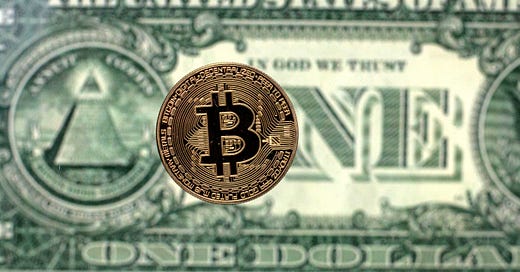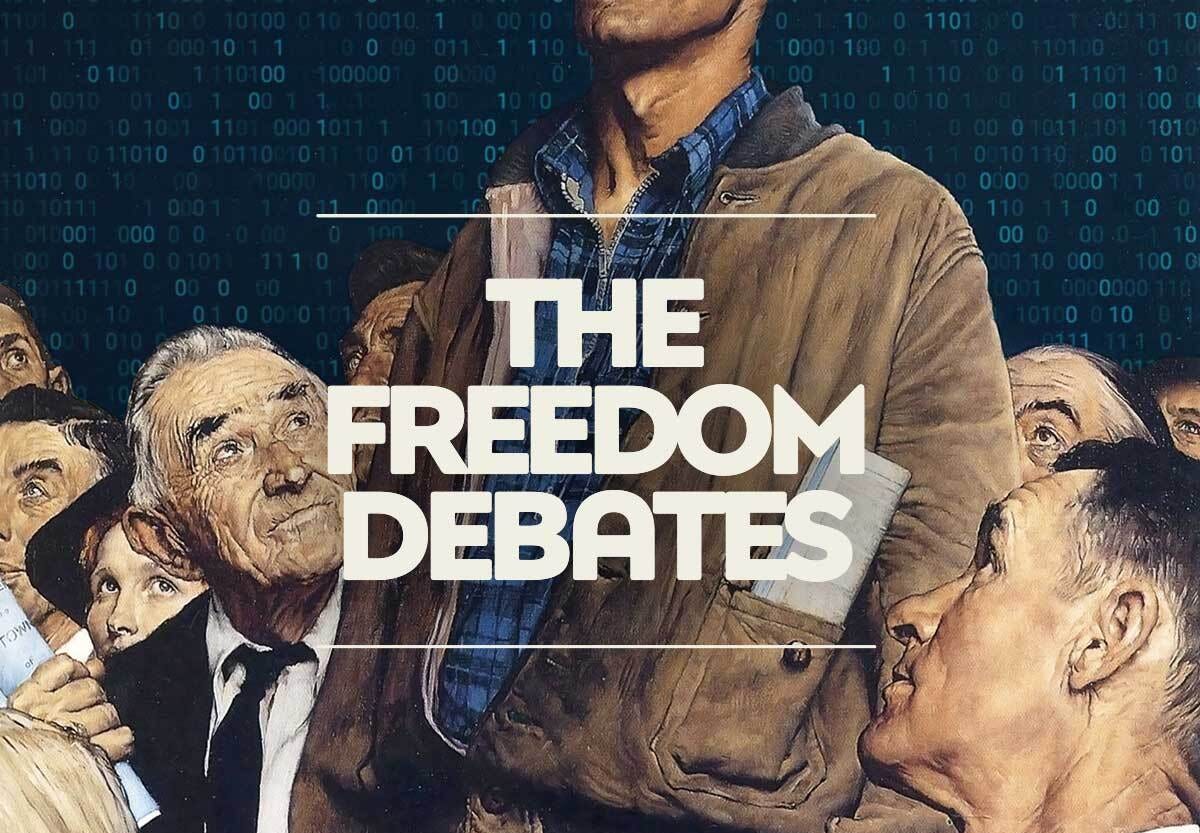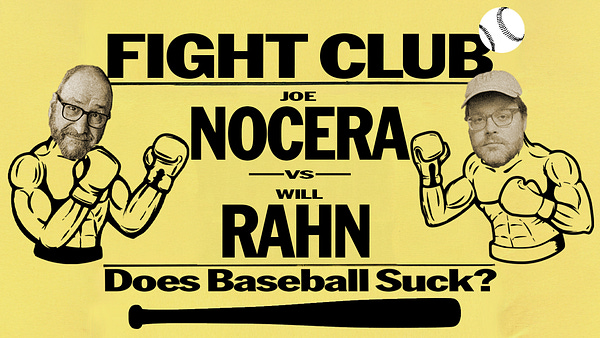
The Free Press

Is Bitcoin for real? In other words: do you think cryptocurrencies like Bitcoin are as transformative an innovation as the Internet browser? That digital currencies can replace the dollar like Google replaced the encyclopedia?
Or do you think that Bitcoin is more like . . . Beanie babies? A bubble driven by overhyped mania that will burst as all bubbles do?
These are the questions I have been asking myself, perhaps like you, for the past few years with increasing urgency. Half the wealthy people I know argue that it’s a fad — one that is going to cost a lot of normal people a lot of pain. The other half insist it is the future of finance. And they are investing accordingly.
I am a person that until very recently did not have a credit card, so I will not pretend to be an expert on real currency, let alone cryptocurrency. I continue to swing back and forth between “This thing is like Pokemon!” to “Ok, I think I see how this thing can replace the money in my pocket.”
The reason I am extremely interested in this topic is that there are some profound political questions at its heart: Are centralized systems better than decentralized one? What areas of our public and private lives should the government have control over? What guardrails does freedom require?
In an effort to moot the very best arguments on both sides of this debate, I reached out to two brilliant investors: Balaji S. Srinivasan and Michael W. Green.
There is no one better to make the bullish case for Bitcoin than Balaji.
Balaji is the former chief technology officer of Coinbase, the cryptocurrency trading platform that went public to huge fanfare last month, and a former general partner at Andreessen Horowitz. “Balaji is the ultimate polymath,” Marc Andreessen told me. “He can actually do everything he describes — and he has, at his own biotech company and at Coinbase. He develops fully articulated theories of the future, supported by substantive grounding in science, engineering, philosophy and history the way normal people write shopping lists and thank you notes.”
You can read Balaji’s various theories at his new site, 1729.com. But I first encountered Balaji on Twitter, where I quickly discovered that he was as passionate about transhumanism (he’s a fan) as he was about The New York Times (not so much). Back in January 2020 he was warning about a mysterious virus from China months before the mainstream media started putting the public on notice. As one Silicon Valley founder put it: “‘Balaji was right’ might be the most terrifying phrase in the English language.”
The question is whether or not he is right about cryptocurrency.
Without further ado, here’s Balaji:
Charlie Munger, Warren Buffett’s right-hand man, made news recently when he blasted cryptocurrency at Berkshire Hathaway’s annual shareholder meeting. “Of course I hate the Bitcoin success,” he said.“I think I should say modestly that the whole damn development is disgusting and contrary to the interests of civilization.”
As invested as Mr. Munger’s companies are in US dollars, my colleagues and I are just as bullish about cryptocurrencies. So what is about to commence is a form of book-talking, though ideally without smack-talking. Mr. Munger’s stake in the old civilizational order is matched by our determination to build a new one.
Part of that new order involves proper respect for our elders. So let’s give Messrs. Munger and Buffett their due: they’re among the greatest investors of all time. Poor Charlie’s Almanack is a font of wisdom, and Mr. Buffett’s letters will be read by future historians as a time capsule of the 20th century American economy. Mr. Munger is right about what he knows.
But he’s wrong about Bitcoin. This is not simply because the Berkshire principals aren’t experts in technology (by their own admission), or because they’re a bit set in their ways (who’d expect otherwise of a 90- and 97-year-old?). It’s because they were the best in the world at riding a 100-year American supercycle, in which the United States rose to world dominance and the dollar rose right along with it.
Mr. Munger isn’t a computer scientist, so I doubt he’s had time to read the source code of Bitcoin to see how it cracked the Byzantine Generals Problem, a previously unsolved problem in computer science whose brilliant resolution enabled the entire field of blockchain research. But he has certainly read that cryptocurrencies can be used for nefarious purposes, and that they operate outside state control. As he colorfully put it: “I don’t welcome a currency that’s so useful to kidnappers and extortionists and so forth, nor do I like just shuffling out . . . billions of dollars to somebody who just invented a new financial product out of thin air.”
Never mind the fact that quite a few criminals have been known to use greenbacks; it’s the fact that Bitcoin is independent of a state that makes Mr. Munger think it’s an enemy of civilization. That’s because he implicitly identifies civilization with the U.S. government and the rules-based international order it erected in the aftermath of World War II.
That order worked very well for a time. It produced peace and prosperity in the Western world, it outlasted the U.S.S.R, and it gave rise to the digital revolution that is the driving force of our era. Not bad.
But the postwar order is now showing its age. It is no longer obvious that America is a model for the world, that it should rule the world, that it wants to rule the world, or that it even can rule the world. (Even if it has never really acknowledged that it is ruling the world, or once was.)
I do appreciate what the U.S. once was, just as I appreciate what the U.K. once was, or what Kodak, Sears, and Lockheed Martin once were. Every great run, though, eventually comes to an end, and the world we were born into is not the one we are entering.
We can spend a long afternoon ticking through the issues, foreign and domestic, that have scrubbed the sheen off the U.S. model. Take a look at any op-ed page. I’m sure you’ll find that sort of analysis there.
I’m much more interested in explaining to you what can take the place of the declining Pax Americana, which I believe will look very much like Pax Bitcoinica.
I’m sure that sounds crazy to some of you. The rantings of a delusional techbro who persists in the belief that new technologies invented by individual engineers can just go viral on computer networks and end up changing the world. Don’t we know that never happens?
In the event that you believe that maybe it does happen — that maybe you’re reading this essay on a technology that did go viral in precisely that way — then read on.
Because this isn’t just about being right. It’s also about protecting the values that the West at its best stands for. If you care about free speech and privacy, if you care about free trade and rule-of-law, if you care about provable fairness and economic stability, then you should care about cryptocurrency. Indeed, I believe that it is a digital life raft for Western civilization. Here are ten reasons why.
1. Crypto Protects Human Rights Around the World
Bitcoin might seem like a curiosity in a democracy with a stable currency. But in countries with deeply unstable economies and authoritarian politics, it is a lifeline. As Alex Gladstein recently explained in Reason Magazine, Bitcoin has been used by dissidents and activists in places like Cuba, Nigeria, and Belarus. In Russia, the country’s most prominent opposition politician and Putin critic, Alexei Navaly, has raised millions in Bitcoin. As Gladstein wrote: “Putin can do a lot of things, but he can't freeze a bitcoin account.” If you want to understand what crypto is really about, ask Venezuelans if they’d rather own bolívar or Bitcoin.
2. Crypto Provides Currency Stability
There was a day not so long ago that $787 billion was a jaw-dropping number. Do any of us know how many trillions of dollars the US government has printed since the 2008 bailout? Do we even want to imagine the potential inflationary effects?
Recall that at the start of the Weimar hyperinflation, everyone thought they were getting rich, with asset prices going through the roof. By the end, everyone unfortunate enough to trust the monetary policy of Weimar Germany was wiped out, and the mark was restandardized on gold. Bitcoin — digital gold — offers an algorithmic, written, transparent, cryptographically-enforced monetary policy that can be predicted far into the future. So it should come as no surprise that prominent investors like Paul Tudor Jones and Stanley Druckenmiller are investing in Bitcoin as a guard against inflation.
3. Crypto’s Decentralization Guarantees Fairness
After the 2008 financial crisis, the issuance of new banking charters was cut off and the imposition of Dodd-Frank created formidable regulatory barriers around financial innovation. In many ways, this was a coronation disguised as regulation, as it “punished” the banks by locking in their moats, boxing out their competitors, and enshrining them as the only players with root access to the financial system.
Fortunately, technologists spent the decade building crypto protocols and digital assets that replace the need for bank access entirely. They built them not just on Bitcoin, but on newer blockchains like Ethereum. These protocols and assets are now being used together in an internet-native ecosystem known as decentralized finance (defi for short) that is fundamentally fair in a way that Wall Street isn’t. An Indian can use defi protocols without a Bloomberg Terminal. A Nigerian can create defi contracts without paying for American lawyers. And a Filipino can computationally verify that defi code is fair without trusting American politicians and bankers.
4. Crypto Protects Free Speech
The spirit of the First Amendment is under attack from giant technology companies and media corporations, with institutional diktat treated as truth and speech restrictions imposed in the name of content moderation. Decentralized social networks allow users to make an end run around these companies.
What’s a decentralized social network, you ask? The same technology that makes it possible to send digital currency to each other without a central hub like the Federal Reserve makes it possible to send digital messages to each other without a central hub like Facebook.
Some partially decentralized social networks already exist, like Mirror, Mastodon, Twetch, Peertube, D.Tube, Manyverse, Commonwealth, and Bitclout. More are being built.
If that seems like gibberish, remember that Bitcoin is now worth more than Facebook, and that crypto suggests a strategy to bootstrap a decentralized competitor to Facebook. What if the near-trillion-dollar valuation of Facebook was split amongst its users, with more going towards the early adopters, and without a central point of corporate control? As far-fetched as this may sound, it’s exactly the dynamic these new networks are pursuing.
5. Crypto Protects Private Property
Several years ago, the total amount seized by police surpassed the amount stolen from citizens by burglars. Most people don’t realize that officers can take cash and property from people without convicting or even charging them with a crime — yes, really! — through the highly controversial practice known as civil asset forfeiture.
The practice is part of a general abrogation of the Fourth Amendment that we can track back to at least the Patriot Act. Dealing with this legislatively may be futile — the trend has been moving in only one direction — but crypto again provides a solution. It is much harder for an oppressive government to arbitrarily seize (or even locate) someone’s digital property. This resets the relationship between state and citizen to make it impossible to search your digital “papers and effects” without your consent. No doubt we can imagine abuses, but when legislative approaches fail, only something unyieldingly principled can bring back the spirit of the Fourth Amendment.
6. Crypto Protects Online Privacy
We learned several years ago that the NSA was spying on Americans and lying to its oversight committee. Eight years later, Edward Snowden still hasn’t been pardoned, and the surveillance state is more tightly merged with social networks and search engines than ever before. Similar developments are taking place overseas, especially in China.
The only force that stands against this is encryption. Encryption isn’t synonymous with crypto, any more than software is synonymous with the internet. But just like the internet was a highly monetizable platform for software, crypto is turning out to be a highly monetizable application of encryption — and the billions of dollars in cryptocurrencies are stimulating a boom in applied cryptography.
7. Crypto Is the Next Silicon Valley
Silicon Valley as we know it is over. San Francisco has gone from the capital of the tech boom to post-apocalyptic wasteland, with failing businesses, violent assaults, and technologists leaving as fast as the cloud will carry them. But spiritually it’s declined as well, with box-checking ideologues staffing many of the large tech companies, and replacing the innovative spirit that built technology in the first place.
But all is not lost — quite the opposite. As valuable as Facebook, Apple, Microsoft, Google, and Amazon are, if you plot their stock prices they look like slow growth vehicles relative to the multi-trillion dollar crypto-economy. The next center of innovation isn’t in Silicon Valley, it’s on-chain. And we should cheer the transition from Google’s “Don’t Be Evil” to crypto’s “Can’t Be Evil.”
8. Crypto’s Smart Contracts Replace Fallible Courts and Lawyers
Lawyers and judges are fallible and can be fickle. Smart contracts built on blockchain technology are not. The combination of a predictable monetary policy and rule-of-code allows us to make binding, long-term, public commitments to pay someone X amount under Y conditions at Z date. The more trustworthy this commitment is, the lower the cost of contract enforcement, the more reliable the deal. For example, if 100 people commit to crowdfund a new housing complex, and their funds are locked up on-chain, you can be sure they're good for the money — and proceed appropriately.
9. Crypto’s Economic Alignment Addresses Social Polarization
Legacy media and social media have polarized us, but cryptocurrencies offer the possibility of bringing us together on the basis of tangible, quantifiable economic alignment. It is now possible for an Israeli and a Palestinian, a Chinese citizen and a Japanese citizen, or a Democrat and a Republican, to all agree on the state of the Bitcoin blockchain. Regardless of your political views or your geography, everyone in the same crypto network prospers or fails together.
10. Crypto’s International Protocols Are the New Code-Based Order
As China and America slug it out in a trade war, a Chinese citizen and an American citizen might not trust each others’ legal systems. But they do trust the Bitcoin and Ethereum blockchains, because the code executes exactly the same way on a Chinese or an American computer (or a Japanese or German one, for that matter). Cross-border trade is alive and well on-chain. Indeed, it’s not too far-fetched to believe that by 2030 or 2040, most cross-border trade may be mediated in whole or in part by a smart contract.
The crypto community today is truly international, reaching 100 million members across every country in the world in just its first decade. It’s not particularist or chauvinist or nationalist. Neither is it socialist or communist or statist. It's internationalist and capitalist, offering global equality of opportunity to anyone with an internet-connected device, which will soon be everyone. What Pax Americana purported to guarantee with guns, Pax Bitcoinica guarantees with code.
Peter Thiel’s former portfolio manager, Michael W. Green, begs to differ. He argues that the crypto narrative is built on half-truths, an odd comfort with criminality, and a nonchalance about the security provided by the nation-state. Read the case against Bitcoin here.













Let me add a third point that everyone should take very seriously.
3. One of the key functions of a central bank (the Federal Reserve in the US) is to act as a ‘lender-of-last-resort’. This is a function that we take for granted now. However, it was a very big deal historically. In the past, there were ‘runs’ on banks and banks would run out of cash. The consequences were grievous. That never happens now, because the Fed just provides as much cash as is needed to stop the ‘run’. Indeed, ‘runs’ don’t even really get started these days (a more complex point, if you include the shadow banking system).
However, Bitcoin could break this system. Right now, the Fed can conjure up any amount of money to stop a bank ‘run’ and indeed, the Fed can invent trillions of dollars to stop a major system event such as the GFC (of 2007/8/9).
If Bitcoin replaced the (paper) dollar, this would not be possible. Paper dollars can be invented by the trillion by the Fed. Bitcoins can not be created at will. Of course, this is (arguably) the key advantage of Bitcoin as well.
However, the bottom line is that the ‘bad old days’, were bad for many reasons. One of them was the lack of a ‘lender-of-last-resort’. Bitcoin might take us back to the ‘bad old days’ in ways were are not prepared for.
Let me use an example (from https://qz.com/1038954/whatever-it-takes-five-years-ago-today-mario-draghi-saved-the-euro-with-a-momentous-speech/).
“Exactly five years ago, European Central Bank president Mario Draghi demonstrated the power of words. The euro zone was in the throes of crisis, with bailouts of debt-laden members pushing the currency union to the verge of collapse. But with a simple, seemingly off-the-cuff phrase, Draghi fundamentally changed the course of events: “whatever it takes.””
Of course, Draghi could not address the deeper problems of the Euro and indeed the deeper problems have gotten worse (in my opinion). However, his example shows how central banks can (and really do) use fiat (paper) currencies to solve real problems.
Now, the obvious counterargument is while Bitcoins can not be printed (quite true), they can be borrowed. The unknown is whether the Fed could/would borrow enough to deal with a financial crisis in the future.
Love the topic... here is a question that may have been answered, but I’m not reading well enough to fully understand... the potential “bubble” people talk about is relative to the value of the US dollar, which is still essentially the world’s reserve or benchmark currency. So YES, you can directly buy goods and services with Bitcoin, but if I understand correctly, they are all priced in dollar or euro and then sold at the exchange rate for Bitcoin. What would it take for commodities to be priced in Bitcoin and then the value of a dollar be tied to its exchange value in Bitcoin? In the wake of our current spiral into MMT and profligate spending of money that didn’t exist before we spent it, that is quite a scary thought - hoping someone can tell me I’m missing something.